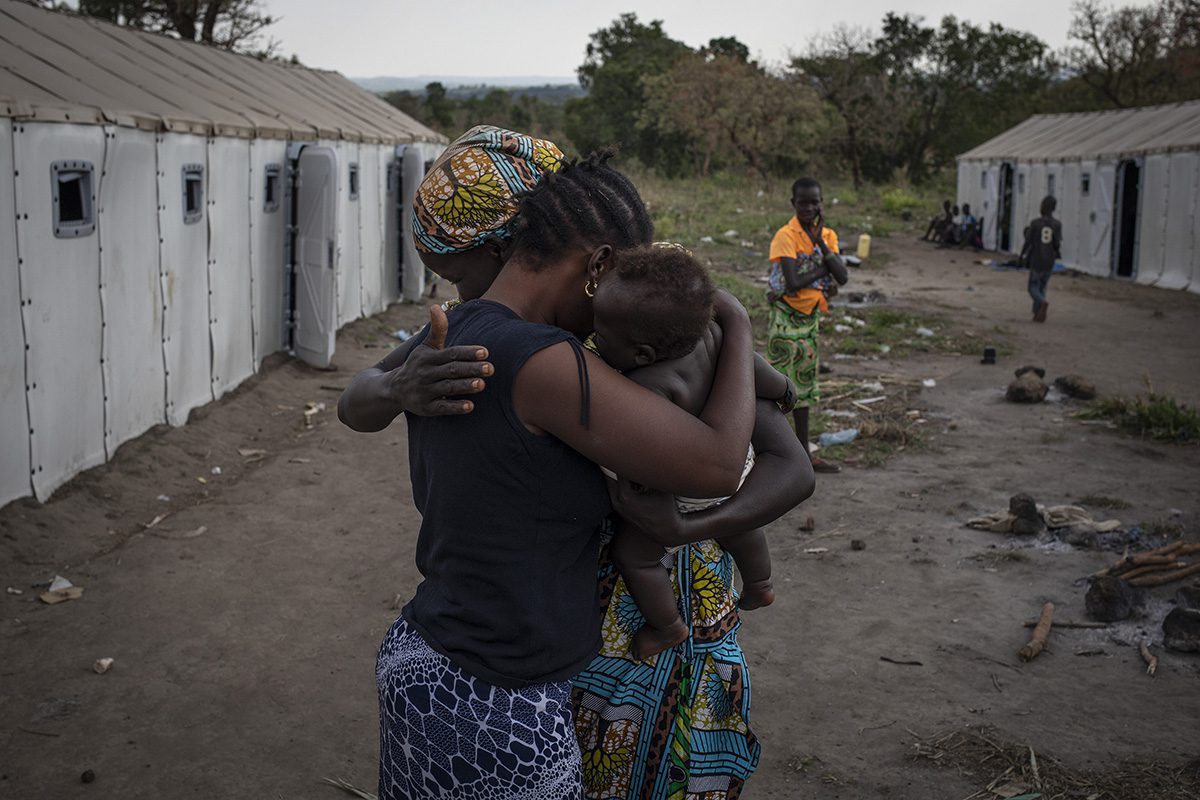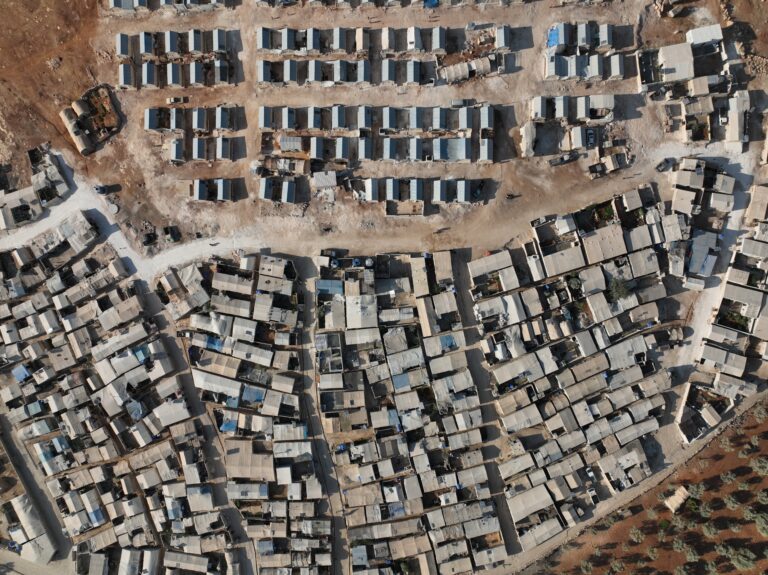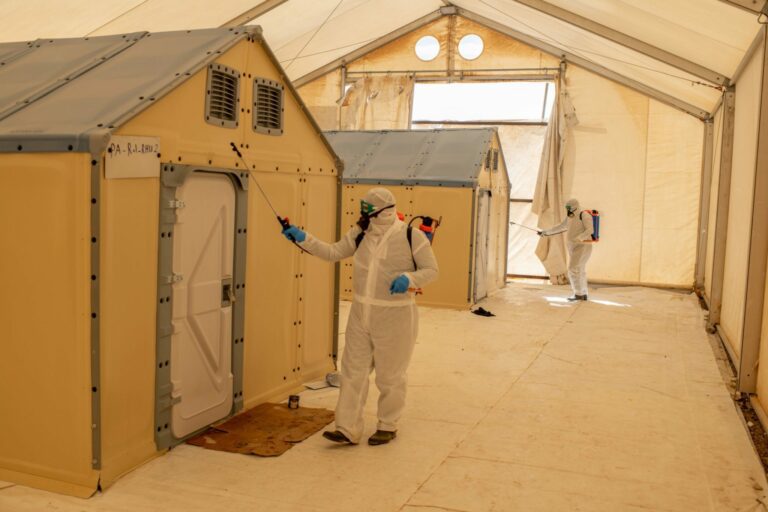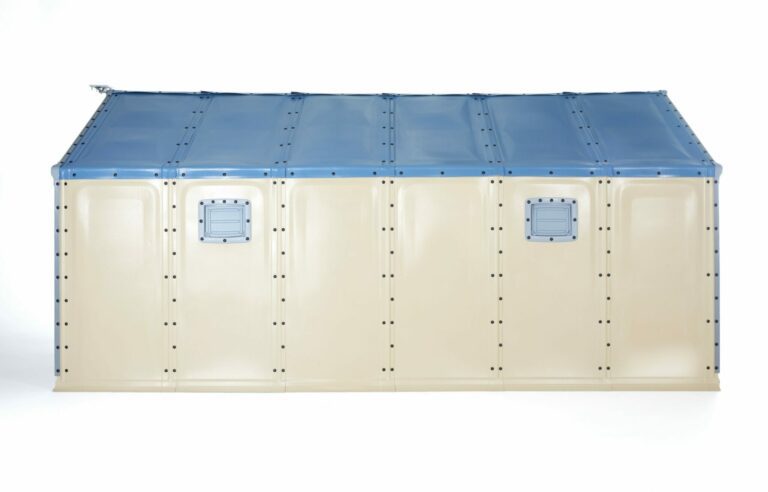Responding to the emergency in the Democratic Republic of the Congo

The Democratic Republic of the Congo (DRC) is among the world’s poorest countries and suffers from the poor economy, lack of infrastructure and the presence of armed groups. By the end of 2018, over 4.5 million people were displaced within the DRC and the country was host to more than 536,000 refugees. Most of these refugees are from Burundi, the Central African Republic (CAR) and South Sudan, and are faced with challenging conditions upon arrival.
As part of UNHCR’s operations in the DRC, 1056 Relief Housing Units (RHUs) were implemented in different refugee and IDP camps throughout the country in order to provide immediate shelters to vulnerable families.
Photos: © UNHCR/Siegfried Modola
Read more about the situation in DRC here.
South Sudanese refugee Ato Grace, 38, poses with six of her eight children: Apio, 10 (back right), Acan, 10 (2nd left), Ojok, 7 (centre), Pira, 6 (left), Ocan, 5 (front right) and Opio, 5 (centre back) at the refugee settlement in Biringi, Ituri province, DRC. Grace arrived in Biringi three weeks ago. She travelled with her eight children anc left three of the older children behind in South Sudan. She goes to the local market in Aru to sell rice and peanuts. When Grace is in Aru she stays at Beatrice’s house. “My friend (Leah Beatrice) has helped me, she gave me money to start my business, she is always close to me”, she explains. The two friends first met in the local market. Beatrice felt Grace’s sorrow and decided to help her, financially and emotionally. Now they work together in the Biringi’s settlement market and in the market in Aru. UNHCR empowers refugees to become self-sufficient. Women refugees, especially single mothers, are encouraged to participate in several activities to ensure they can provide for their families. Training and material support provided include farming, tailoring, hairstyling, baking and so on. The conflict in South Sudan has caused one of the world's largest refugee crises. There are over 2.2 million South Sudanese refugees in the region, with over 96,000 in DRC alone. Refugees hosting areas in Ituri and Haut Uele provinces are among the most impoverished in DRC, marked by chronic food insecurity, limited livelihood activities, and conflict. Refugees live alongside host communities, who are generally welcoming but have limited resources to share. Public services and infrastructures, such as hospitals and schools are precarious and do not have the capacity to respond the the continuous influx of refugees arriving. ; UNHCR supporter Jillian Michaels visits South Sudanese refugees in the Democratic Republic of the Congo.
Newly arrived South Sudanese refugees rest in a temporary tent at the refugee settlement in Biringi, Ituri province, DRC. The conflict in South Sudan has caused one of the world's largest refugee crises. There are over 2.2 million South Sudanese refugees in the region, with over 96,000 in DRC alone. Refugees hosting areas in Ituri and Haut Uele provinces are among the most impoverished in DRC, marked by chronic food insecurity, limited livelihood activities, and conflict. Refugees live alongside host communities, who are generally welcoming but have limited resources to share. Public services and infrastructures, such as hospitals and schools are precarious and do not have the capacity to respond the the continuous influx of refugees arriving. ; UNHCR supporter Jillian Michaels visits South Sudanese refugees in the Democratic Republic of the Congo.
Joyce (right) embraces Joyce Arime Faida, 32, after having being separated for a long time, at the refugee settlement in Biringi, Ituri province, DRC. Joyce has just recently arrived at the settlement from South Sudan and has reunited with her friend from home, Joyce Arime Faida. They hadn’t seen each other in two years. They were class mothers together in South Sudan where their children went to school together. Joyce Arima Faida works in a bakery in the Biringi settlement, earns income and is able to send her son to school. New arrival Joyce hopes to join her friend and also work at the bakery after she has settled in to life at Biringi. UNHCR empowers refugees to become self-sufficient. Women refugees, especially single mothers, are encouraged to participate in several activities to ensure they can provide for their families. Training and material support provided include farming, tailoring, hairstyling, baking and so on. The conflict in South Sudan has caused one of the world's largest refugee crises. There are over 2.2 million South Sudanese refugees in the region, with over 96,000 in DRC alone. Refugees hosting areas in Ituri and Haut Uele provinces are among the most impoverished in DRC, marked by chronic food insecurity, limited livelihood activities, and conflict. Refugees live alongside host communities, who are generally welcoming but have limited resources to share. Public services and infrastructures, such as hospitals and schools are precarious and do not have the capacity to respond the the continuous influx of refugees arriving. ; UNHCR supporter Jillian Michaels visits South Sudanese refugees in the Democratic Republic of the Congo.
Newly arrived South Sudanese refugees rest at the Aru transit centre, Ituri province, DRC. As a first place of arrival, UNHCR brings refugees from the border to the city centre of Aru. Refugees receive initial support (food and non-food items) and are registered biometrically. Aru transit centre has capacity to accommodate 500 people. Refugees usually stay here around 48 hours. As of the end of January 2019, the influx of refugees has increased from 60-70 people to 150 per week. ;



